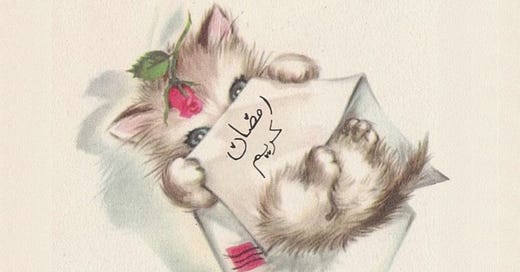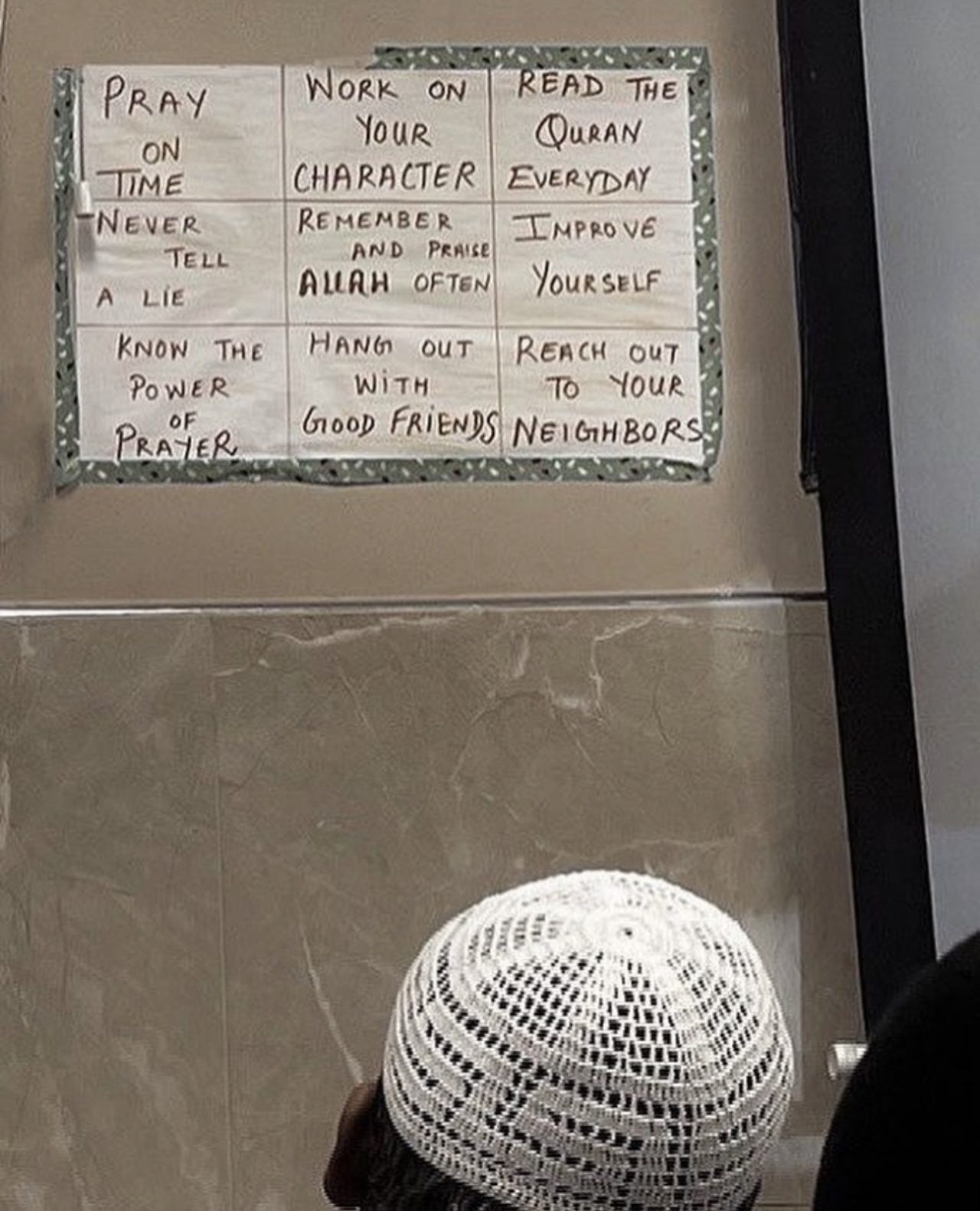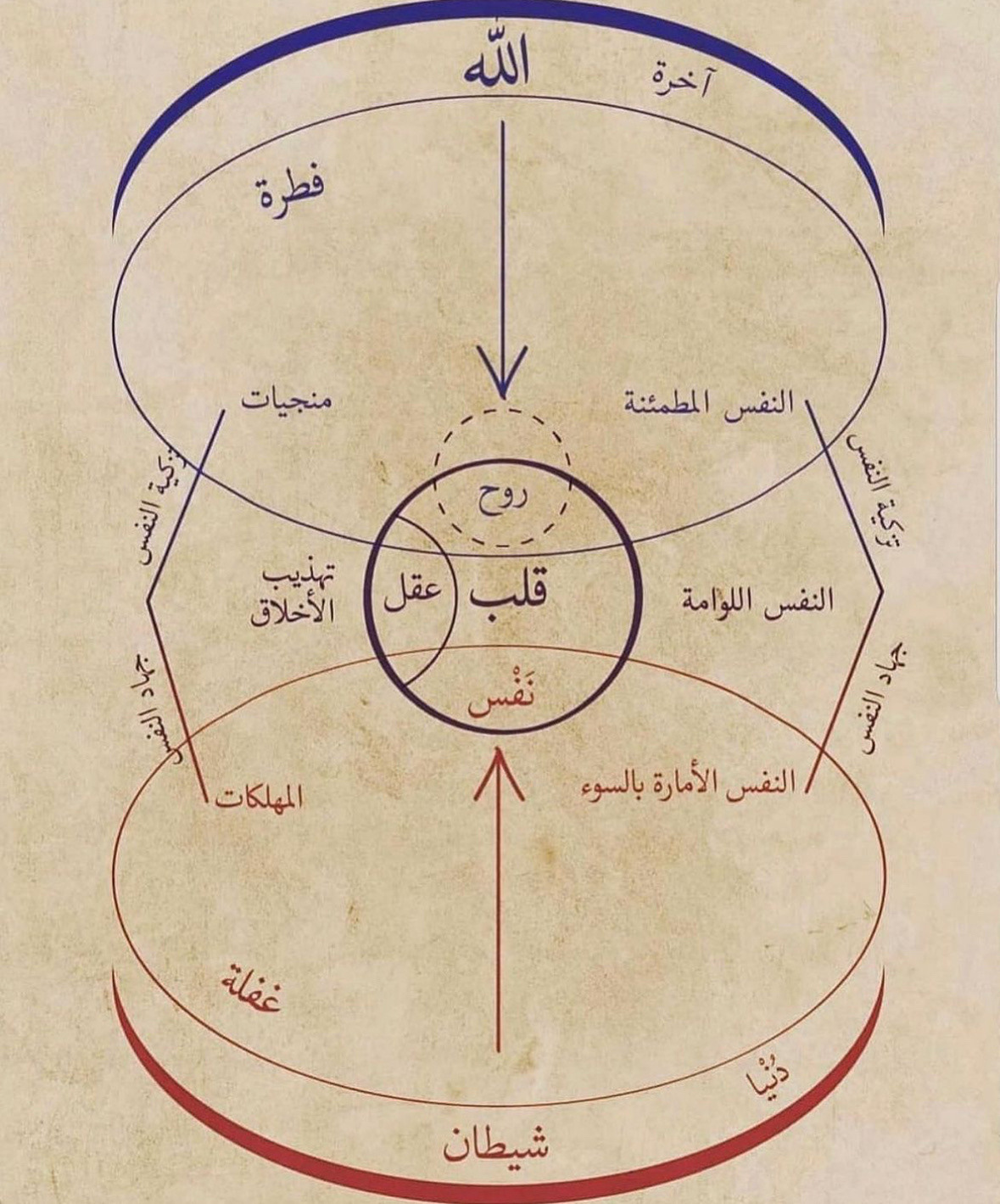Ahlan,
I hope this finds you well and that the first week of Ramadan has begun to take root and soothe your soul. I wish all of you a restorative, revolutionary, and restful Ramadan. I also wish that this month yields lightness in your hearts and for your affairs to be taken care of by the One who takes care of all of us, The Ultimate Guardian and Overseer (Al-Muhaymin).
I am welcoming this month feeling a bit of fomo since I can’t fast this year (BF’ing mamas are exempt from fasting). This has totally given me a new perspective on what worship actually means during Ramadan and perhaps is teaching me that in the past, I focused too heavily on the act of fasting from a physical perspective rather than a spiritual and psychological one. Sometimes we fall into the trap of thinking that by abstaining from food and water and all the physical aspects of fasting then our job is done. Ramadan is much more than that and I’m sorta learning that the hard way.
I find Ramadan to be incredibly insightful because it teaches us a few things that perhaps we don’t realize about ourselves the rest of the other eleven months of the year. We don’t truly understand just how resilient, patient, and disciplined we can be until we reach this month and we are able to to willingly commit to such a sacrifice for the sake of Allah. It shows just how powerful of a force for positive growth and transformation that fasting really is.
That being said, with overconsumption and wasteful practices becoming a norm rather than the exception, I’ve been seeing some worrying trends that further push the commercialization of Ramadan therefore turning this holy month into somewhat of a performative extravaganza rather than what it stands for which is: renewal, community, repentance, and reflection. Maybe I’m just being a hater, but it felt uncomfortable and a little out of touch to see Muslim influencers and notable figures advertise things like expensive Ramadan decor displays, luxurious stuffed dates, Ramadan PJs (?), and more. All while this is the one time in the year we should be turning away from excessive consumption, waste, and indulging in the material things in life. What’s even more jarring is the disparity of livelihoods between those flaunting their lavish lifestyles compared to our brethren suffering in Gaza, where aid and electricity access have been cut off since the commencement of this holy month. Not only does this set unrealistic standards for most people, but it is also an indication of how easy it is for Muslims to fall into this cycle of overconsumption… especially when major brands + companies are finally beginning to recognize Ramadan as a profitable occasion. We were doing fine when they didn’t know we existed (or rather when they didn’t care…) and we definitely don’t need big corporations to validate or create Ramadan “vibes” for us now. Striving to avoid falling into this trap requires us to foster a deep and genuine understanding of why Muslims should consume consciously and live sustainably in the first place.
We are living in a world where duplication and conformity have become the standard, and it can sometimes feel isolating to stand out, be yourself, or refuse to follow trends. I’ll admit I’m the first to fall victim to the appeal of silly trends sometimes. “Khaleeji girl aesthetic”, “Vela girl”, “Matcha runs”, “Arabian perfumes” — we need to seriously start interrogating this mass inclination to assimilate or surrender to wasteful trends, especially in light of what the ongoing climate crisis is trying to teach us. Owning fewer things and living a life conscious of waste falls perfectly in line with what it means to be a true khalifah (steward) of Allah on this Earth. He (SWT) has left as us caretakers of this planet and we should be honoring this responsibility rather than making light of it.

What are some ways you are trying to mitigate overconsumption and waste in your own life this Ramadan? I know for me, it was difficult to resist the temptation to splurge on pointless Ramadan “decor” and Ramadan abayas (I have a closet full of abayas I never wear… and yet…) — so I chose not to purchase anything I didn’t already have. I also chose to ditch the fried foods this year because they are terrible for you and honestly just make you feel lethargic + too stuffed to pray Taraweeh + are super wasteful. Also, in the age of Qahwa House and Shotted (a local Saudi coffee shop) — I am choosing to make my coffee at home and use my humble espresso machine instead of splurging on nine dollar lattes.
I should note that I am not trying to vilify the act of romanticizing Ramadan, which I think is important, but rather trying to make a point about how annoyed I am by the blatant extravagance being exhibited by some in the name of Ramadan.
Anyways.
Ramadan this year looks very different for me. For the first time, I am not fasting. Before motherhood, I had all the time in the world to focus on my personal ibadah (worship) journey and use my time at my own will without anyone relying on me. I barely had to worry about iftar unless I was feeling generous enough to help my mom cook on any random day, and most importantly — I attended Taraweeh prayers at the masjid every single day.
Life couldn’t be more different at the moment. Not only am I not fasting, I don’t have that kind of time (or energy) anymore. Back aches and migraines have become daily encounters for me and my *almost* 3-month-old son makes sure I am not setting up any rigid routines. The idea of not having any control over how my Ramadan goes was initially hard for me to surrender to, causing me lots of anxiety before the month began and even more guilt/regret when it started.
As a new mama, it’s been extremely strenuous to try and mimic what my Ramadan’s used to look like before while also managing my tasks, etc. In my efforts to figure out how to make the most of what little time I would have in Ramadan and understand how to navigate motherhood during this month, I joined a course on building “devotional habits” with Dr. Mariam Sheibani. Dr. Sheibani taught me many things but amongst them, the most profound thing her course taught me is the idea of “honoring the circumstances Allah has placed you in”. This can mean many things of course but in my case, I interpret this as accepting what Allah has ordained for my role to be in the moment and currently, that is to be a mother. Many of us play different roles in society, for example: I cannot accomplish the kinds of ibadah I perhaps did prior to becoming a mom because I simply don’t have the capacity anymore. Does that mean my ibaadah is now meaningless and I am losing out on my Ramadan experience? No. It doesn’t.
What it means is that by honoring the circumstances He (SWT) has placed me in, I am more equipped to worship from a place of acceptance and tawakkul (reliance on Allah) that is actually liberating instead of limiting. It is about succumbing to the position Allah has granted you. I am a mom now, there is no changing that. All I needed to do is adjust the type of devotional habits I had in place rather than give up all hope and dispose of any aspirations I had for this month of Ramadan. One must create their own devotional “formula”, something tailored to their specific role and lifestyle (while also keeping obligatory acts at the forefront). It’s important to remember that your worship doesn’t need to look like anyone else’s. Dr. Sheibani also helped me realize just how much your social obligations and everyday patterns are acts of ibadah in themselves.
Motherhood is worship. Nurturing your baby is worship. Meeting the needs of others is worship. Even taking an afternoon nap between Dhuhr and Asr is worship. My point is, that Allah’s mercy is beyond measure and it is our “sincerity, effort, and presence” that matters more than the efficiency or quantity of what we do. Allah does not burden a soul more than it can bear He promises us in verse 2:286 — so why are we wallowing in despair because of unrealistic goals or unfair comparisons?
As we enter the second half of Ramadan, try to focus on progress by making small tiny changes and avoid the pressure to be “perfect” because let’s face it, none of us are perfect. Do not lose hope in Allah’s mercy, after all, He does remind us “Is there no reward for goodness except goodness?” in Surah ar-Rahman (55:60). So keep pushing, keep trying your best, and laser focus on His mercy because that is truly what encompasses His love for us. He is Al-Wadud (the Most-Loving), and it is only through His kindness that we have even reached Ramadan which is a mercy in itself.
And though my Ramadan may now look like a quiet dhikr session with my baby or the short prayers I can squeeze in during his nap times, I know it is just a phase that one day I’ll remember with nostalgia and yearning (inshallah). The quiet nights will return, but for now, I will cherish these sleepless nights and hold my infant close. I’d much rather live in this moment than complain and miss the beauty of it all. My baby will only be this small once, and to me, that is worth losing a little bit of convenience.
Alhamdulillah for the mundane. The roof over our heads, the food on our table, the running water, the warm home, the safety. Reflect on the abundance Allah has given you — “so which favors of your Lord will you deny?” (55:13).
small tidbit:
I recently attended a pre-Ramadan workshop at my local mosque by Sr. Dalia Mogahed and she suggested a specific formula for goal-making during Ramadan that I wanted to share so here it goes:
Pick one act of ibadah that you are going to do in the month of Ramadan that you weren’t doing before, pick one act of ibadah that you were doing before Ramadan but do it much better with more focus and effort, and subtract one habit that is perhaps distracting you or isn’t beneficial/caused heedlessness. This has been my habit formula for the month, and I feel it’s been working. Let me know what you think!
Thank you for reading and please, keep me in your duas.
Love,
Iman








❤️
truly struck a cord. definitely got some good journaling prompts to reflect on. may Allah grant you barakah ameen! we can turn anything to please Allah. may Allah reward you ameen. ❤️